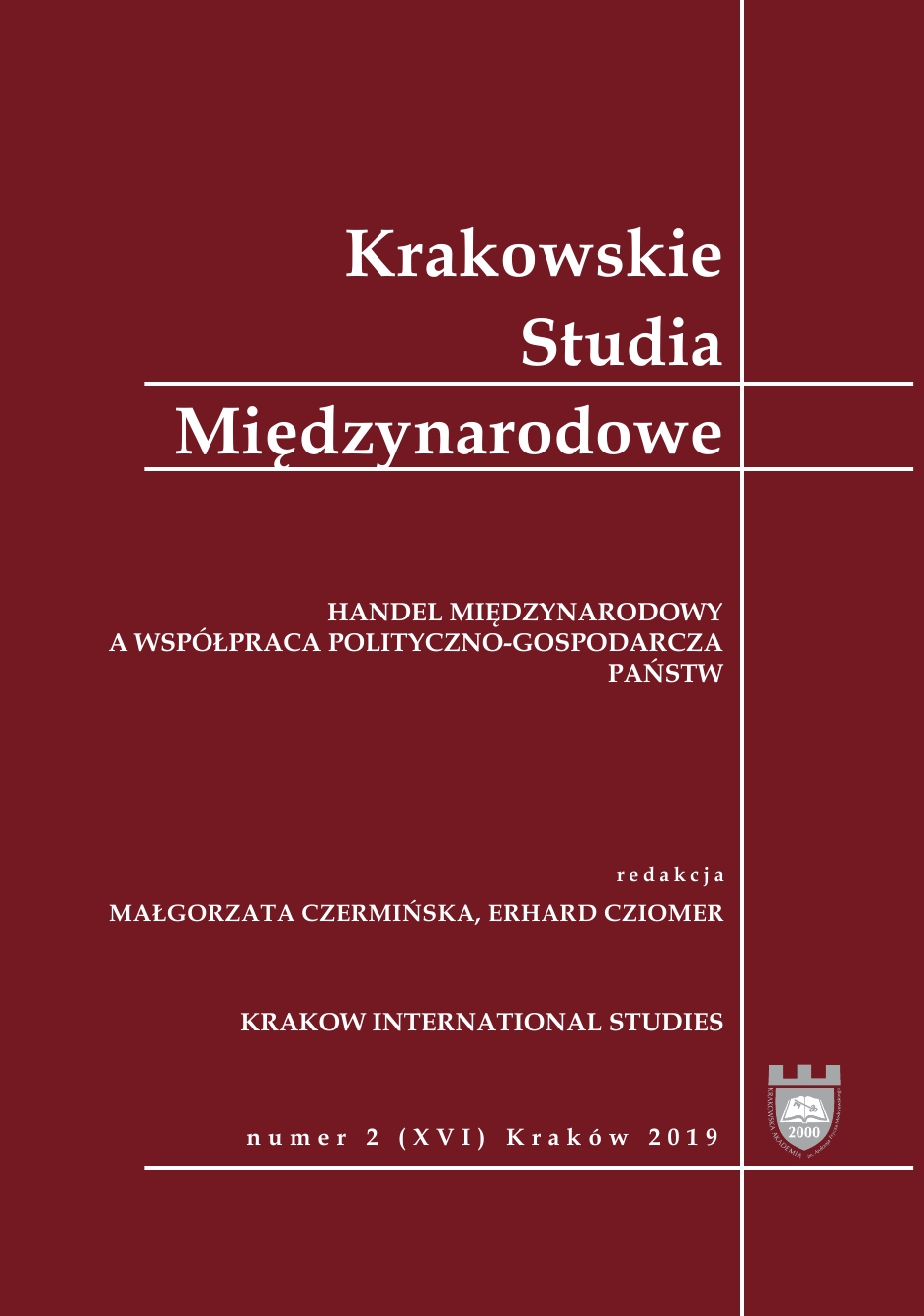Znaczenie handlu dla współpracy polityczno-gospodarczej Niemiec z Rosją w wymiarze historycznym i współczesnym
The Importance of Trade for Germany’s Political and Economic Cooperation with Russia in the Historical and Contemporary Dimension
Author(s): Erhard CziomerSubject(s): Economy, Economic history, Economic policy, International relations/trade, Geopolitics
Published by: Oficyna Wydawnicza AFM Uniwersytetu Andrzeja Frycza Modrzewskiego w Krakowie
Keywords: Germany; Russia; trade; political-economic cooperation; history;
Summary/Abstract: The article presents the significance of trade for political and economic cooperation between Germany and Russia in the historical and contemporary dimension. The analysis focuses on assessment of the determinants of the role and importance of trade in three phases of German-Russian political and economic cooperation: 1) general determinants and development of cooperation from the end of the World War I in 1918 to the end of World War II in 1945, 2) in the former West Germany in the years 1949–1989 and 3) in the period of the United Germany in the 1990s and in the 21st century. In the periods mentioned above, trade exchange was an quintessential element of the overall GermanSoviet-Russian relations in the political and economic spheres. Germany’s role as the main trading partner of the USSR in the West in the 1970s and 1980s enabled, among other things, the Kremlin’s consent to the peaceful reunification of Germany 1989/1990 and contributed to their strong involvement in the economic transformation of the Russian Federation after 1991. In the second decade of the 21st century, the People’s Republic of China (PRC) became the first trade partner for Russia was, undertaking joint actions to reduce the neoliberal international order with the dominant role of the United States.
Journal: Krakowskie Studia Międzynarodowe
- Issue Year: XVI/2019
- Issue No: 2
- Page Range: 161-181
- Page Count: 22
- Language: Polish

